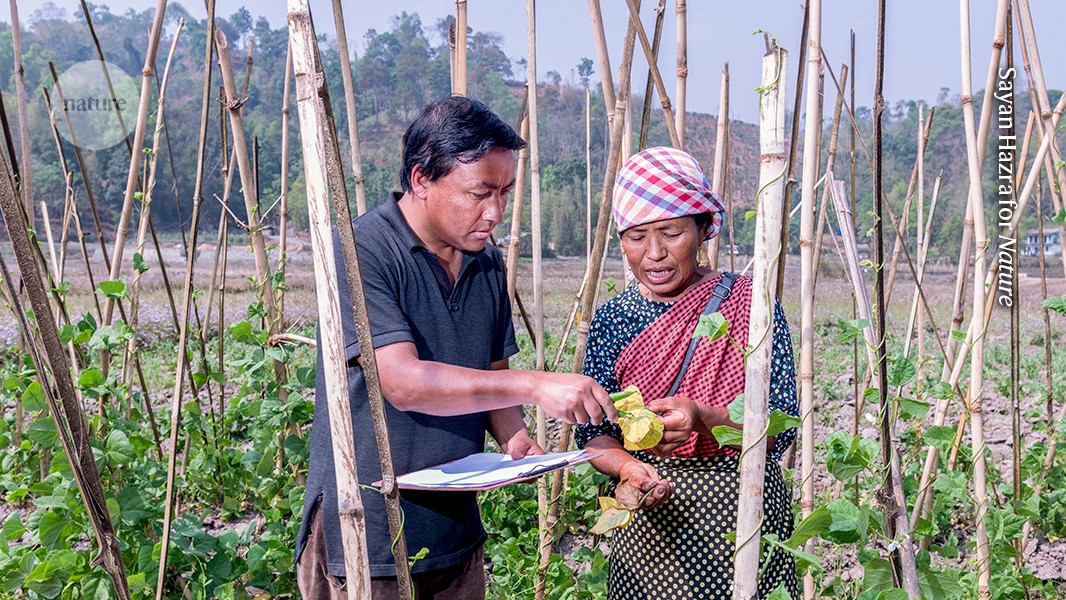“Here in Meghalaya, India, the practices of Indigenous Peoples influence the foods that we eat and where they come from. It’s a food system characterized by richness and diversity. The Khasi, Garo and Karbi Indigenous People here grow multiple plant species together on the same land, use several approaches to farming and rely on knowledge of the surrounding forests and rivers. In the conventional system of farming, people grow food in one place all the time. But here, people farm in different areas across the mountains every year.
These food systems are resilient because of that diversity. Climate change is affecting agricultural systems around the world and farming contributes to around 30% of global greenhouse-gas emissions. Implementing Indigenous Peoples’ food systems is among the game-changing solutions that can help us to adapt.
In this photo, I’m examining bean leaves with Khasi farmer Ricona as part of my research on the links between Indigenous Peoples’ food systems, food sovereignty, nutrition and natural-resource management, as a consultant for the North East Society for Agroecology Support in Shillong, India. Over the past few years in Meghalaya, we’ve experienced record rainfall, rising temperatures and extreme heat waves.


